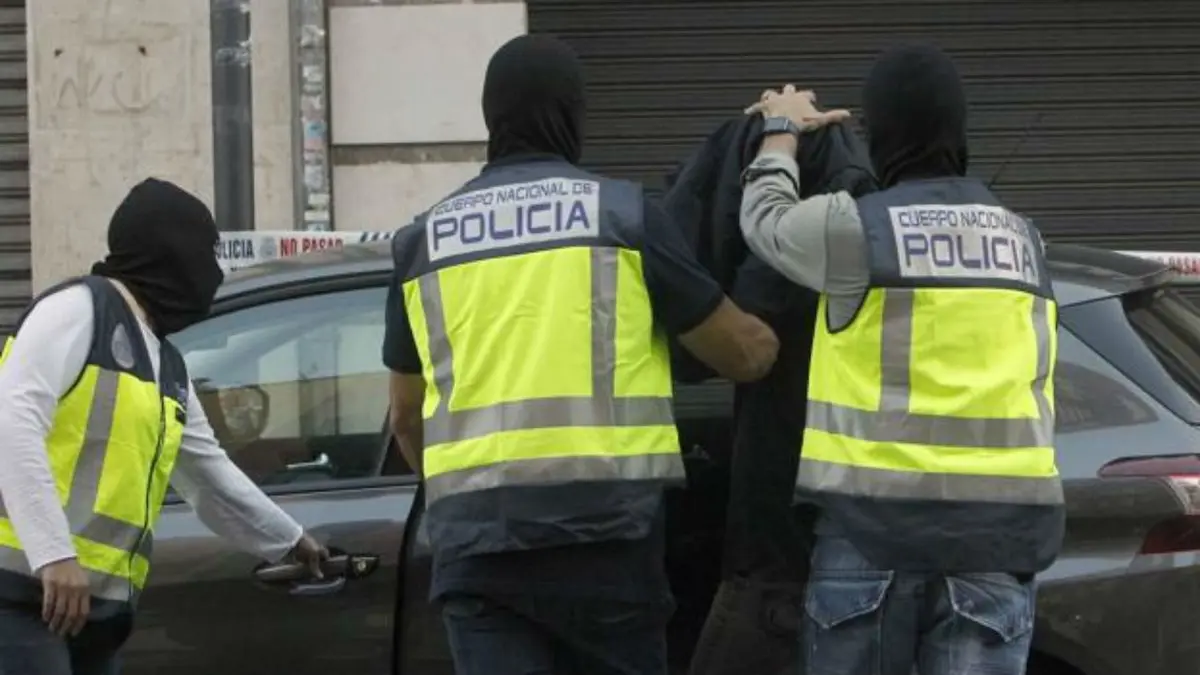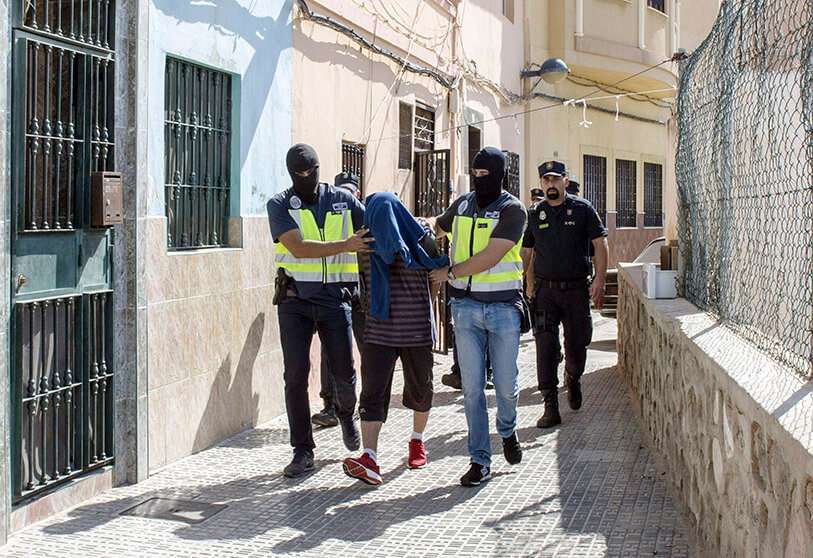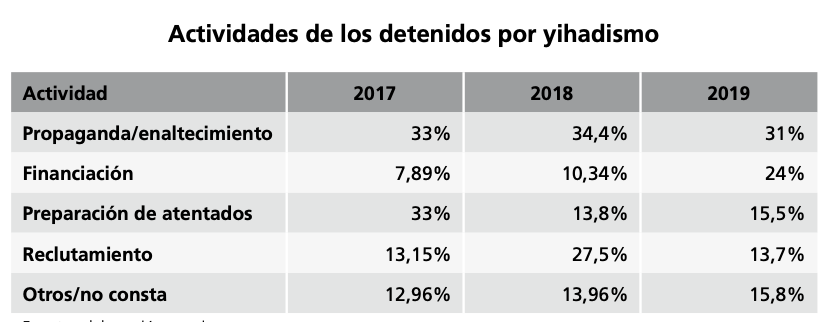Spain... a change in the treatment of ideological groups

In Spain, the authorities have stepped up their efforts to tackle the growing activity of the Muslim Brotherhood within their territory, after detecting five main centers linked to the organization, most of them located in Catalonia and Valencia.
According to the International Observatory on Terrorism Studies, the city of Barcelona is considered “a hotspot of activity, where 14 security operations out of a total of 49 that took place in Spain during 2025 were recorded, all of them linked to terrorist activities.”
The Spanish newspaper Libertad Digital noted that “these figures represent a worrying increase compared to the statistics for 2023, which led the National Institute of Statistics and Information to issue warnings about the systematic growth of the organization's influence.”
Involvement in terrorist operations
Members of the Muslim Brotherhood have been implicated in several terrorist operations in Spain, according to a report published in 2022 by the Center for Documentation on Political Islam (a government agency) in Austria.
According to the center, “one of the facts established about the Brotherhood in Spain is the involvement of a significant number of its members in terrorist operations throughout the first two decades of this century.”
It mentions that “the Abu Dahdah network, active in Madrid and considered one of the largest and most sophisticated terrorist groups in Europe in the last 30 years, is undoubtedly the best-known example of the Brotherhood's involvement in terrorist attacks.”
The Abu Dahdah network was created in the early 1990s by an organized core of members of the Muslim Brotherhood (Syrian branch) residing in Spain and, according to the center, maintained close ties to Al Qaeda.
Meanwhile, the National Intelligence Center (CNI) distributed a confidential report to several ministries in Spain, warning of “the uncontrolled flow of funds from abroad to various Islamic projects in Spain and the negative impact on coexistence that these funds, channeled through alternative routes outside the control of the Spanish financial system, could have.”

Wide expansion
In the early 1980s, members of the Islamic Center in Spain, mostly from the Middle East, managed to open offices in Barcelona, Granada, Cordoba, Seville, Malaga, and Valencia, according to a study on extremism in Spain published in 2022.
The main members of the Islamic Commission of Spain, including its president, were accused of belonging to a criminal organization, collaborating with a terrorist organization, financing terrorism, money laundering, tax fraud, and document forgery, following “Operation Wamor” carried out by the National Police in June 2019, which dismantled what was described as the largest jihadist terrorist financing structure ever discovered in Spain.

According to the investigations, “a network of Spanish citizens—mostly of Syrian origin—with close ties to the Muslim Brotherhood and operating out of the offices of the Islamic Commission of Spain, allegedly abused their influence in official institutions to develop structures and channels for financing terrorism.”
The study by Spanish researcher Sergio Altuna Galán, who specializes in Islamic movements and security studies, concluded that “the institution that brings together the various European organizations that, in one way or another, maintain links with the Muslim Brotherhood, was born in Madrid.”
Pressure in Switzerland
The issue of the expansion of the Muslim Brotherhood is not only a concern for Spain. Numerous European countries have sounded the alarm following intelligence reports revealing the depth of its penetration into European societies.
In Switzerland, the political sector is intensifying pressure on the government to push for measures against the Brotherhood and political Islam, with a parliamentary initiative that began in 2020.
In 2021, MP Lorenzo Quadri introduced a bill on political Islam calling for the introduction of a new criminal offense under that name to protect internal security.
In the same bill, debated in December of that year, he called for a ban on associations that defend this ideology and the closure of their mosques and cultural centers in Switzerland, before MP Walter Wobmann raised a question in parliament that same year about foreign funding of Brotherhood associations and mosques.
Last July, Swiss MP Jacqueline de Quattro (Liberal Radical Party/Canton of Vaud) requested a detailed report on the situation in Switzerland, following a French report showing that 7% of Islamic places of worship are linked to the Brotherhood and that it poses a threat to national cohesion.
She submitted a proposal to the Federal Council (Parliament) to draw up a report on “the presence, organization, networks of influence, and working methods of political Islamist movements, especially those close to the Muslim Brotherhood, in Switzerland.”
For its part, the Swiss newspaper 24 Heures warned of the growing influence of the Brotherhood in the country, noting that this movement “does not act solely through mosques, but is quietly expanding through community, educational, and financial networks, thus constituting an invisible threat to the social fabric and democratic values.”
In January of this year, the Swiss city of Biel and the managers of the Kongresshaus venue canceled a contract to hold a controversial conference on the month of Ramadan due to security concerns over the participation of extremist figures linked to the Brotherhood, according to the Swiss press.
The Blick newspaper reported that around 1,000 people were expected to attend, but the list of speakers sparked a major controversy in the media. Among the participants was Samir Radhouane Jlassi, the highly controversial imam of the Lugano mosque, who had already been denied Swiss citizenship by the Swiss authorities because of his contacts with members of the Brotherhood. The Federal Intelligence Service (FIS) warned that Jlassi poses a threat to Switzerland's security.
Meanwhile, a report in the Swiss newspaper Le Temps in January 2018 revealed that Swiss intelligence had launched extensive investigations to uncover Swiss organizations' support for terrorist groups through a network of individuals, including Libyans exiled in Switzerland since the 1990s.
The report noted that “the city of Ticino, located on the border with Italy, has been a stronghold for the international branch of the Brotherhood since 2001.”
Previously, the Swiss government had announced “a plan to prevent the radicalization of young people,” which included 26 measures, among them tougher penalties and security measures, strengthening the powers of the federal police, and drafting a new intelligence law.









